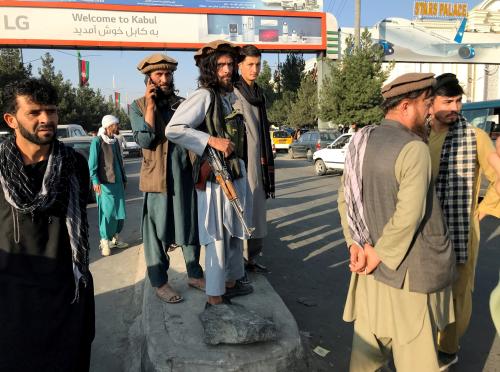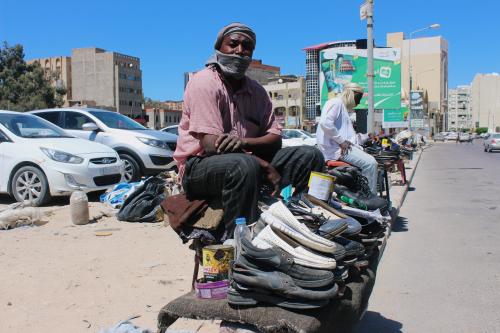One particular risk internally displaced persons and refugees face is the loss of property left behind and the inabilility to recover it. In fact, destruction of property has become an instrument of warfare or even ethnic cleansing in many civil wars, and resistance to return often takes the form of refusal to evict persons who have taken over their houses or apartments, or to refuse compensation for destroyed property. Property issues become especially important at the end of the conflict when return of internally displaced persons and refugees becomes possible – at least in principle. Experiences in many parts of the world show that three elements must be in place to make returns possible and successful: First, safety of the life and limb of returnees must be ensured, i.e. violence must have come to an end, those who caused the displacement must have left the area or agreed to refrain from violent acts in the future, and the police and judiciary must be able to protect returnees from remaining threats and dangers. Second, property left behind by those displaced must be returned to them and, where necessary, repaired or in cases of total destruction reconstructed, or returnees must be compensated for damages. Third, the political, social, and economic environment in the area of return must allow returnees to stay and to start a life under normal conditions. Returns cannot be sustainable if returnees do not have jobs or other forms of livelihood, are denied access to health, education, and other social services to a different extent from the non-displaced population, and face other kinds of discrimination.
Thus, the issue of property rights is a crucial element in finding solutions to internal displacement. In many cases, particularly where displacement is prolonged, returning IDPs find others living on and using their lands. In some cases, these “secondary occupants” have themselves been displaced from their original homes. In others, those occupying the lands have been helped to do so by the authorities or the forces that drove the original owners or occupants away. Laws discriminating against returnees, the absence of a corruption-free and independent judiciary or the loss of land titles and other relevant documentation can render a just resolution of resulting property disputes difficult to achieve. Moreover, even where the laws or judicial institutions are adequate to address the task, authorities sometimes resist their implementation.


Commentary
Internal Displacement and the Protection of Property
July 19, 2006